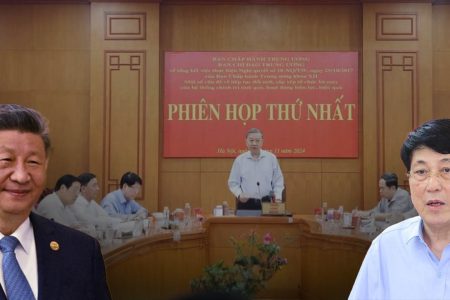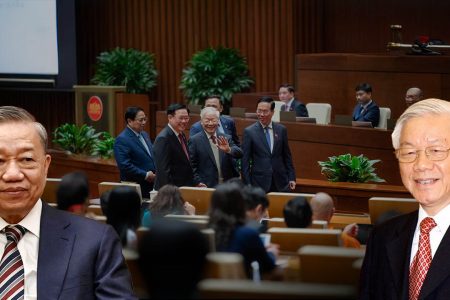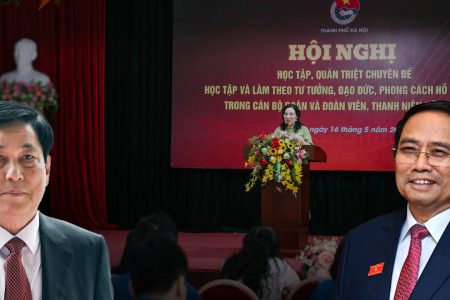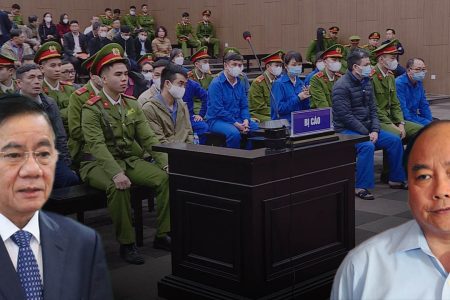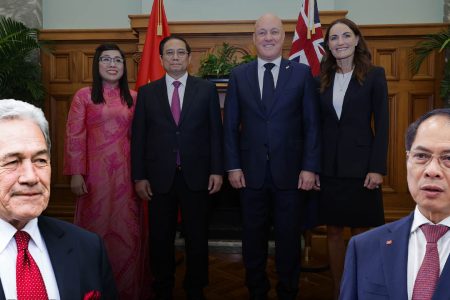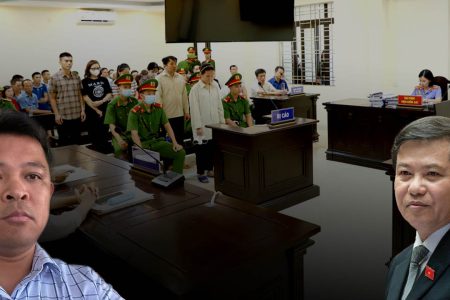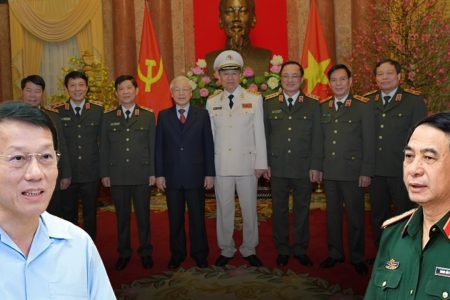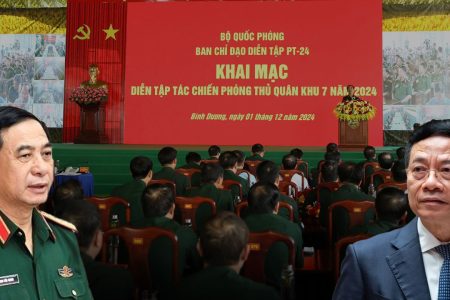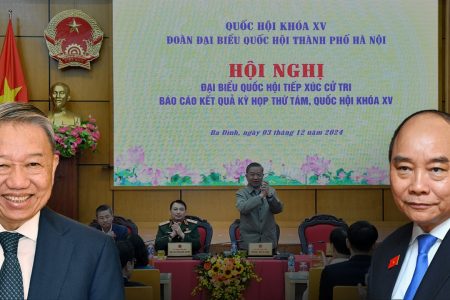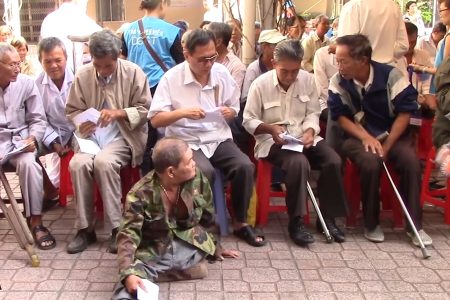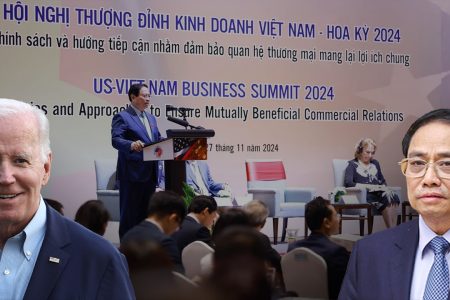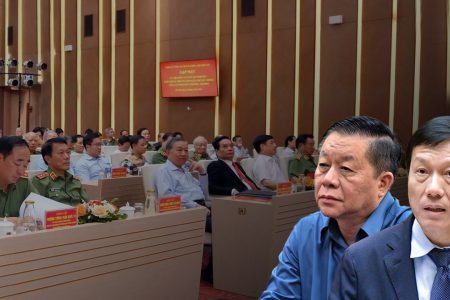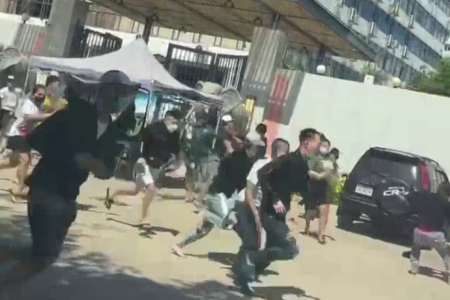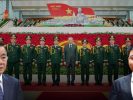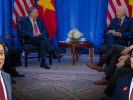
At the meeting of the Standing Committee of the National Assembly on the morning of January 12, 2021, Chief of the Supreme People’s Procuracy Le Minh Tri proposed to enact the Law on Property Registration, considering it as a tool to increase transparency on assets.
According to Mr. Tri, if there is a Law on Property Registration, any citizen who registers a new property without proving the property’s origin will be traced. If the person being subject to traceability cannot explain the reasonable reasons, the authorities will have a legal basis to punish.
Article 105 of the Civil Code 2015 states that property is objects, money, valuable papers, and property rights. Assets include real estate and estates. Real estate and immovable property can be existing and future assets.
According to lawyer Trinh Vinh Phuc through the Facebook messenger application with RFA on the evening of January 13, the promulgation of the Law on Property Registration is only a proposal of Mr. Tri. From the proposal to the law project or project to the law building program of the National Assembly, and then discussing, approving, promulgating, and implementing it is a long process. Lawyer Phuc analyzed:
“Mr. Le Minh Tri proposed to develop the Law on Property Registration in the context of Vietnam’s efforts to prevent corruption, in which the Procuracy plays a key role.
In fact, in Vietnam citizens’ assets are managed through registration with state agencies for a long time. Currently, property such as houses, land, ships, vehicles, motor vehicles such as cranes, tractors … all must be registered, which also means registration with the State agency. Previously, the use of TV, radio, video-cassette … must be licensed, it also means property registration, now it has been removed.
An asset of special significance is gold among the people, which is not yet managed by the state. Perhaps people began to pay attention to the management of this property …
In my opinion, if we want to fight corruption effectively, we only need to make legalized that officials and people with positions must be forced to declare their assets. Only people with positions are corrupt, so there is no need to enact laws to force ordinary people to declare assets.
Just having the Law on property declaration and registration for the party and state cadres is enough!”
When it comes to the type of asset that is gold among the people, the Government of Vietnam has repeatedly turned to this kind of asset. Typically since 2011, the Governor of the State Bank at that time, Mr. Nguyen Van Binh, submitted to the Prime Minister, also at that time, Mr. Nguyen Tan Dung, on the policy of attracting gold from the people.
Most recently, on January 9, speaking at the Planning and Investment Conference, Minister of Planning and Investment Nguyen Chi Dung mentioned the incentive mechanism to mobilize resources from the people, especially gold and foreign currency.
To fight corruption, the authorities have long issued decrees, regulations, and laws to manage and control staff assets, but seemingly only superficial. At the meeting of the Standing Committee of the National Assembly in September 2018, National Assembly Chairwoman Nguyen Thi Kim Ngan emphasized that, according to the current Anti-Corruption Law, assets due to corruption will be confiscated. As for the added property but the person with the obligation to declare is unable to reasonably explain the origin, up to now, the law has not had a provision for handling.
In addition to the Law on Anti-Corruption 2018, at the end of October 2020, the Government additionally issued Decree 130/2020/ND-CP regulating the control of assets and income of people with positions and powers in the party and state agencies. This decree is said to have many new points to ensure more control over real assets and income. However, the decree stipulates that if the declarant is found to be dishonest but actively resigns, he/she will not be disciplined.
Responding to the state-controlled media about this regulation, Mr. Dinh Van Minh, chief legal officer of the Government Inspectorate said: “This is not an erasure, but shows the humanity and appreciation of the effectiveness of the fight against corruption, not necessarily just punish. For a person who is in the leadership position, to resign is a very heavy job.”
Commenting on Mr. Le Minh Tri’s proposal to enact the Law on Property Registration, blogger Luu Trong Van wrote on his personal Facebook page (that RFA had asked for permission to quote) that:
“There are many regulations and the party’s resolution on forcing the leaders to declare their property and the property of their relatives but a few have done it.
Anyway, the Procuracy’s chief with his speech put an end to the very self-proclaimed self-declaration game that the party has been promoting for years.
Of course, if there is a law without a democratic mechanism for supervision of the law, all regulations are not effective, especially when state officials not really want to fight corruption.”
Through the corruption cases brought to trial over the past time, it is clear that only officials have the right to become corrupted. And in order to prevent corrupt assets from being confiscated, most of those assets are transferred to a family member in the names that the authorities even know cannot confiscate.
According to Mr. Le Minh Tri, in this matter, the Procuracy knows all but can do nothing because of the ownership rights of citizens. That is why he proposed to enact a new law. Thus, whether this law violates the property rights of citizens or not and whether people object to them?
I support the inspection and control of people’s property with the condition that first of all, the property of party members and state officials must be checked. People are poor. Such a proposal is just to dredge anything from the people. If they propose, the people also have the right to re-propose, said Ms. Nguyen Lai from Nha Trang.
She continues:
“When officials are corrupt, they find ways to launder money by buying houses, hotels, and restaurants for their family members. There is nothing for people to be afraid of.”
The fight against corruption in Vietnam began in 1998 when the Government issued specific policies and laws, including the 1998 Ordinance on Anti-Corruption (revised in 2000); 1998 Law on Complaints and Denunciations (revised in 2004); 1998 Ordinance on Civil Servants (amended in 2003) … until the Law on Anti-corruption passed by the National Assembly on 20 November 2018 and comes into effect from 1 July 2019. But it seems they are not effective.
During a conversation with RFA on the issue of anti-corruption in Vietnam, Dr. Dinh Duc Long affirmed that, once the party’s regulations are higher than the Constitution, all actions against corruption in any form is just to protect the interests of the Party, not to protect the interests of the people.
Thoibao.de (Translated)



